Opinions & Interviews
Lukashenko warns against covering up problems in education
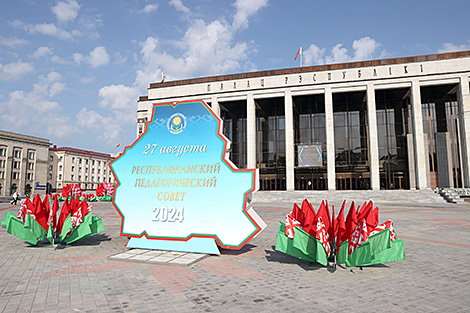
MINSK, 27 August (BelTA) – Following Education Minister Andrei Ivanets’ report at the Nationwide Conference on Teaching on 27 August, Belarusians President Aleksandr Lukashenko asked what problems remained in the education sector and whether the school had become a true temple for students, BelTA has learned.
“Do you remember that I once said that the school is a temple, and when you enter this temple, you should be fully aware of its importance (this pertains, first of all, to students)? Has this instruction been fulfilled? Do students treat the school with deep care? Do they realize where they come? Have you reached this responsible behavior in students? Do you finally have it at school or not?” the president asked.
He also asked the education minister to outline the problematic aspects that were not voiced in the minister's report. “There is an impression that there are no problems. I would like you to list these problems. List them for the pedagogical community to hear,” the Belarusian leader said.
According to Andrei Ivanets, one of the most important tasks is to educate a true citizen and patriot at all levels of education. The second task is to restore the prestige of the teaching profession. Measures are being taken in this regard, but it is necessary to return the sacral meaning of the teaching profession - the respect and status in society, the minister said.
Thirdly, it is necessary to understand that young people are not a labor resource, but human capital. Therefore, the process of education should be considered not through the prism of training a narrow specialist for the industry or enterprise, but to prepare a person for the future development of the country.
According to the minister, serious progress has been recently achieved to improve attitude to school. Discipline and order are fully secured. It is important to pay attention not only to students, but also to teachers, who would influence the children.
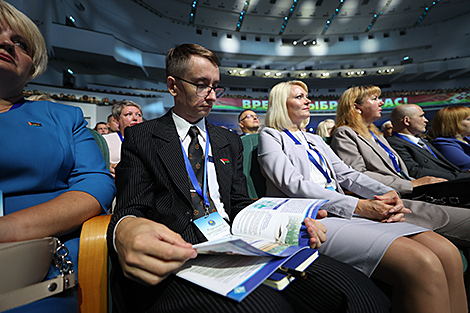
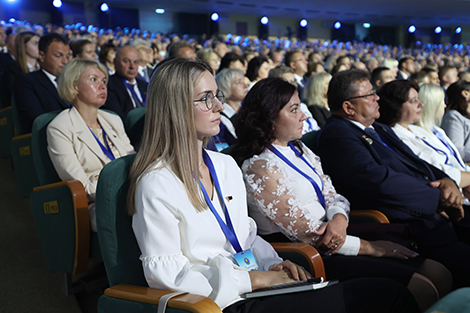
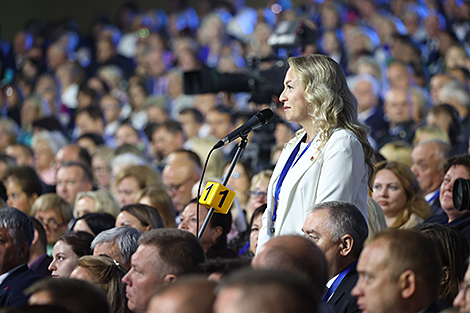
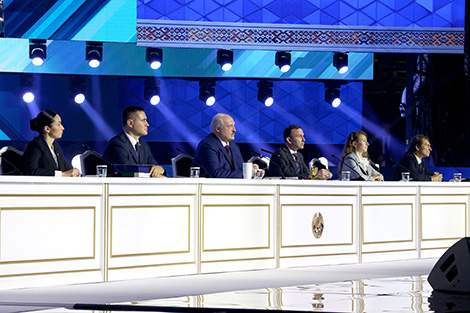
Aleksandr Lukashenko emphasized that the nationwide conference on teaching should not be formal bureaucracy, because if the problems are not revealed, they will remain in place.
“Without you, teachers, there will be no one. Most importantly, there will be no health. If you do not teach it at school, there will be no doctors,” the Belarusian leader remarked.
He warned the Education Ministry against attempts to silence something and hide problems. “I have enough levers, forms and methods to study the problem deeply enough,” Aleksandr Lukashenko emphasized.
The president outlined several problematic points that were not voiced in the minister's report. For example, this year there has been a certain shortage of enrollment in higher educational institutions. This shortage was formed mainly in agricultural specialties. Specialties of engineering and technical profile came in second. “This is what we need most today. Everyone wants to eat. People need to be fed and clothed. This means agriculture. How are we going to feed ourselves tomorrow? What are we going to wear? Everything comes from the land. Why do we have a shortage here? You have not even said a word about it,” the Belarusian leader said. “How are we going to live without engineers tomorrow? Lawyers and historians will neither make electric cars nor build a nuclear power plant. We need engineers first of all. Where are they? You did not say we had such a problem. I am just, on the spur of the moment, naming what we should pay attention to.”
Labor education was another aspect mentioned. The minister reported that many schools had gardens. Aleksandr Lukashenko remarked that not all schools followed the suit. “Maybe every school, starting from universities, or maybe from the Education Ministry, should have a kolkhoz [collective farm]?” the head of state said.
This phrase of the president was met with a round of applause in the hall.
“Believe me, it is a very serious issue. I see the dynamics. Yes, we have reached unprecedented heights. No one thought some 20 years ago that we could reach these heights. If we do not see that we are forming long-term problems, we will fall into the same abyss we were in following the collapse of the Soviet Union. We have to see that. We should not cover it up, we should not hide it,” the head of state stressed.







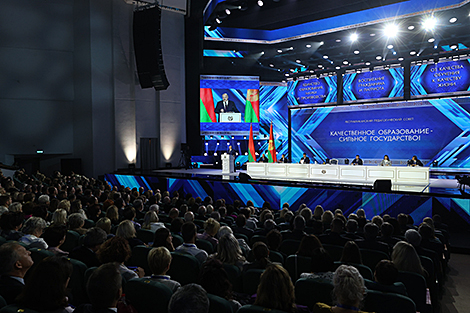
 print version
print version make home page
make home page add to bookmarks
add to bookmarks

